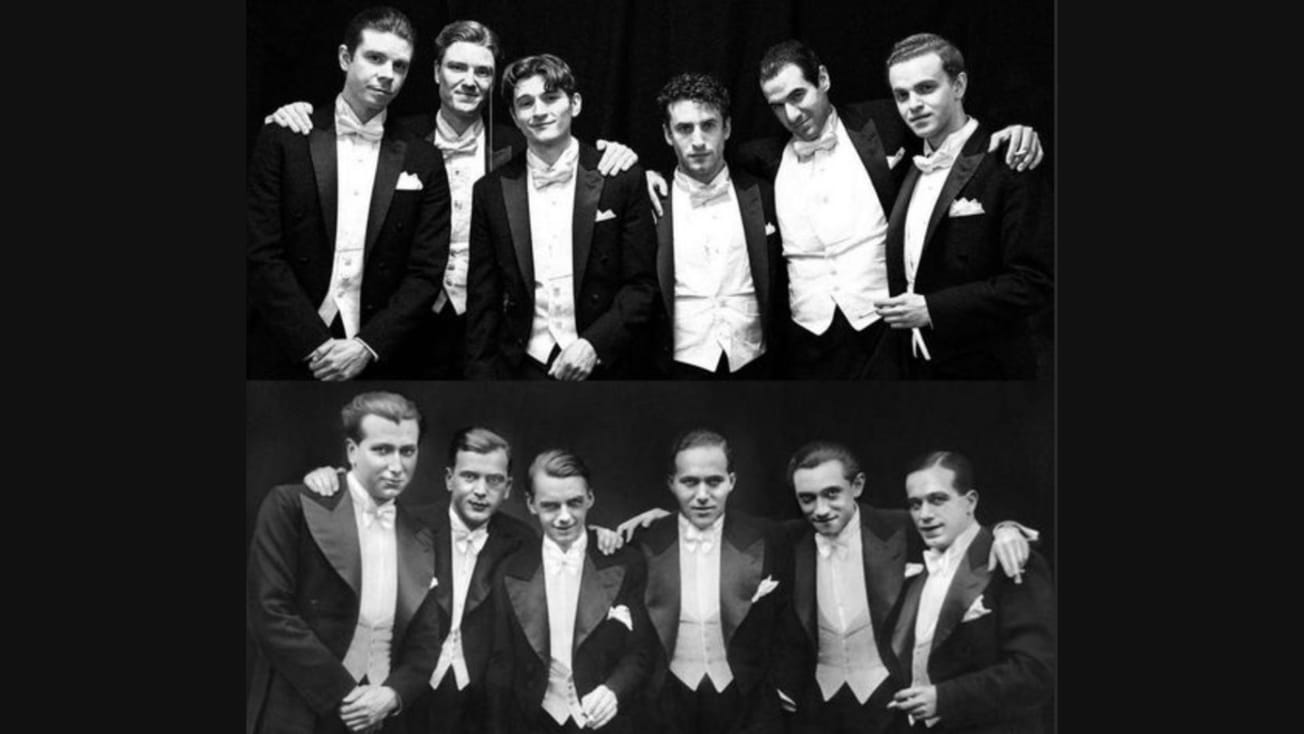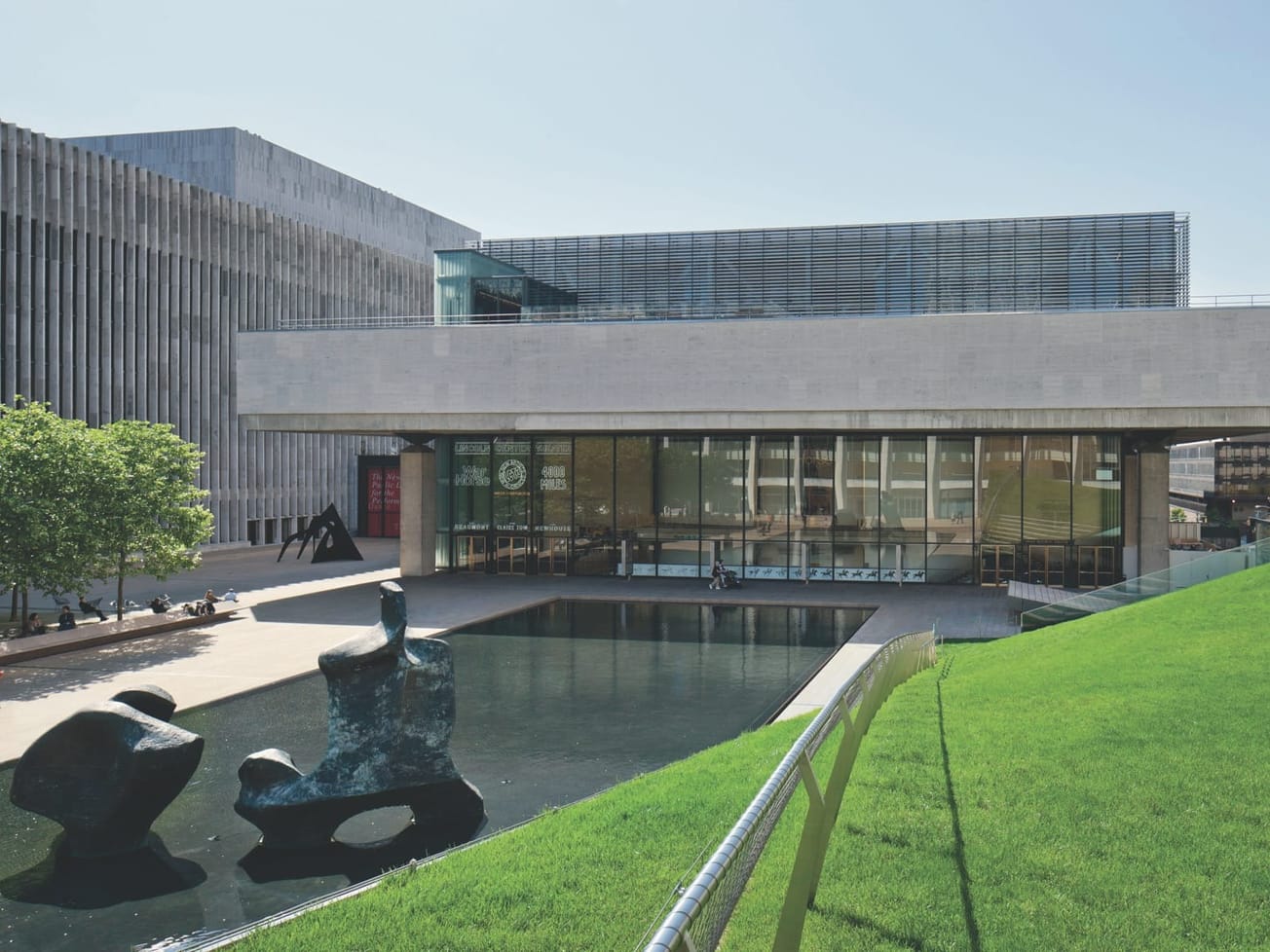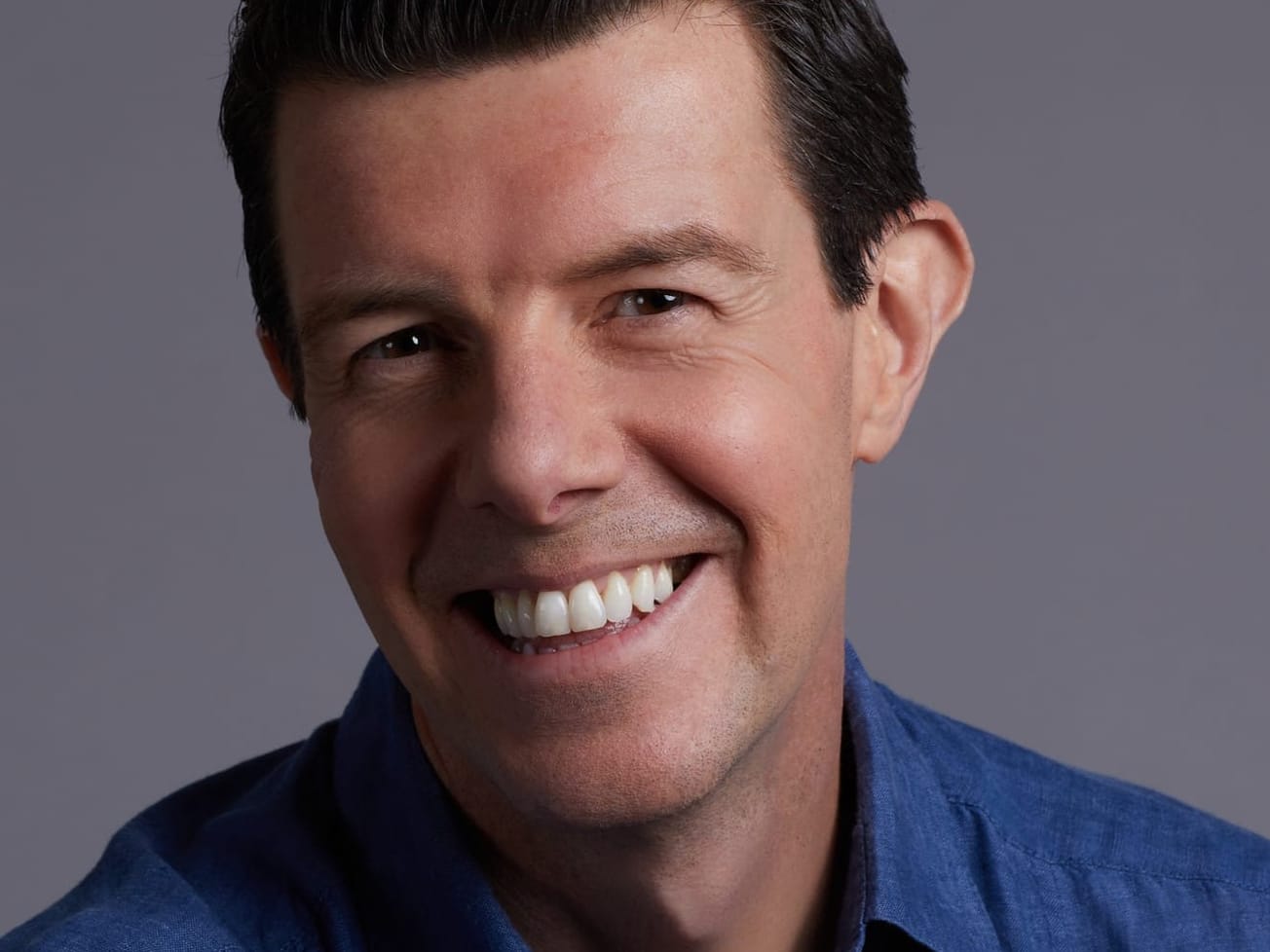When Bruce Sussman first started writing the musical that would become “Harmony,” in the 1990s, there was only one historical resource about the Comedian Harmonists: the 1976 Eberhardt Fechner documentary about the German singing group, which had sparked Sussman’s interest in the group in the first place. Given that the doc was the only available reference, it is remarkable how much Sussman got right in the final musical. But, as with any stage adaptation, Sussman had to condense his material, and he also dramatized moments.
The Comedian Harmonists did not start off with the exact six members that eventually rose to fame — the six that were depicted as the original and final sextet in “Harmony.” In reality, it took more than a year (and the incorporation and ousting of multiple early members) to get to the perfect combination of six musicians: buffo Harry Frommerman, bass Robert Biberti, first tenor Ari Leschnikoff, second tenor Erich Collin, baritone Josef Roman Cycowski and pianist Erwin Bootz.
Listen to the first episode of “Who Were the Comedian Harmonists? The True Story Behind Broadway’s ‘Harmony’”:
According to Comedian Harmonists enthusiast and amateur historian Jan Grübler, “The idea [for the group] came to Harry Frommerman, the founder of the group, in the late 1920s because he was influenced by shellac records from the American group The Revelers.” Grübler, who wrote Frommeran’s biography, noted that the founder came from a musical family and was able to play, compose and arrange music from an early age. After listening to the Revelers, Jan said, “[Harry] got the idea: Why shouldn’t we do something similar in Germany with German lyrics in that very modern and until then unknown style?”
The opening number of “Harmony” portrays the assembly of six men into one group. In this first episode of “Who Were the Comedian Harmonists?,” Broadway News and the producers of “Harmony” reveal the group’s more complicated beginnings, including the details of how and when each final member came to be a part of it.
As “Harmony” portrayed, the Comedian Harmonists first became renowned in Germany. As a critic in the Leipziger Neueste Nachrichten wrote, “The Schauspielhaus will not be able to invite the Comedian Harmonists … too often, or the house will be stamped to pieces. This time the visitors in the orchestra already had stucco falling on their heads, so much did the audience rage and stamp.”
Their fame spread. As shown in the musical, the Comedian Harmonists toured Europe and performed on major stages in the U.S. But what “Harmony” didn’t show is that when the race laws came down in Germany, the group dissolved and reformed as two separate groups: the Jewish “exile group” or “Vienna group” known as the Comedy Harmonists and the non-Jewish German group the “Meistersextett.”
The inner group dynamics were often complicated, but the music was unencumbered by it — known around the world as singular and beautiful.
As Sussman said: “The central metaphor for them — something I’ve always wanted in the show and I’ve never gotten — is a shooting star. It was a brief but spectacular burst of glory.”
Want to know the details of the group’s fortune and fate? Listen to the full debut episode of “Who Were the Comedian Harmonists? The True Story Behind Broadway’s ‘Harmony’” with the player above or download and subscribe to the podcast on platforms including Spotify and Apple Podcasts. New episodes of “Who Were the Comedian Harmonists?” (produced by Broadway News and “Harmony” A New Musical and edited by Daniel Piñeiro) are released on Wednesdays.


























































